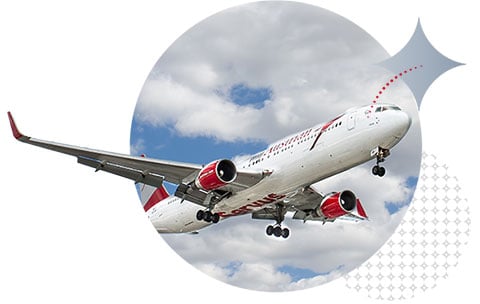How to move to UK
Make the most of your money for the move



Guide on moving to UK
10 minute readIf you’re considering moving to the UK from overseas, there are several things that you’ll need to bear in mind. Would you like to embrace the hustle and bustle of city life, or do you prefer the idea of enjoying everything that country life has to offer? If you’re moving for work, this decision may well be out of your hands. Rest assured, however, that the countryside and the beach are often within easy reach, even in the UK’s biggest cities.
Wherever you wish to move in the UK, you’ll need to make sure that you have all the right paperwork in place before you pack your bags.
Can I move to the UK after Brexit?
Following the end of Free Movement from January 2021 onwards, citizens from the EU and EEA are subject to immigration controls. In practical terms, this means that EU nationals are required to carry a passport in order to cross the border following Britain’s departure from the European Union,
Foreign nationals are now also required to apply for a visa if they wish to move to live and work in the UK for longer than six months.
Moving to the UK for work
Post-Brexit, foreign nationals can continue to visit the UK without having to apply for a visa: they can participate in a range of business-related activities, including meetings, events and conferences.
EU nationals are now required to obtain a work visa in order to undertake paid work in the UK if they do not have settled or pre-settled status. Under the UK’s points-based immigration system, those coming to the UK for work must meet specific requirements, with visas awarded to those who gain sufficient points. There are a number of visas that are available to those looking to undertake work for longer periods of time:
Skilled Worker visa
To qualify for this visa, applicants must demonstrate that they:
- Have been offered a job from a Home Office-licensed sponsor
- Will be paid the relevant minimum salary threshold by their sponsor (this is normally £26,500 or the going rate for their job - whichever is higher)
- Are able to speak English at the intermediate level at B1 (on the Common European Framework of Reference for languages)
Skilled Work: Health and Care visa
If you have received a job offer from the NHS or social care, can speak English and meet the Skilled Worker route requirements, you can apply for the Health and Care visa. You can also bring your family, and there is the option of fast-track entry, with reduced application fees and support offered throughout the application process.
Once you have lived in the UK for five years on your work visa, you can apply for an Indefinite Leave to Remain (Permanent Residence).
How to apply for a National Insurance Number
If you’re planning on living and working in the UK, you will need to apply for a National Insurance number. These are issued by the Department for Work and Pensions (DWP), and you will need to apply online. You will require the following documentation:
- A passport from any country, or alternatively a biometric residence permit (BPP) or national identity card from an EU country
- A photograph of yourself holding your passport
- Photographs of other identity documents
You may need to attend a face-to-face interview as part of your application, and you should bring the following documents:
- Passport
- National identity card
- Birth certificate
It can take up to four weeks to receive your National Insurance number. If, after four weeks, your NI number still has not arrived, call the National Insurance number application helpline for England, Scotland and Wales:
- Telephone: 0800 141 2079
- Textphone: 0800 141 2438
Cost of moving to the UK
If you’re decide to move permanently to the UK, it may be necessary for you to transfer your savings across to your new bank account and send payments to your home country in order to support your family. Find out more about the process with our in-depth guide on how to open a UK bank account as a foreigner.
Whether you wish to buy a house or send some of your earnings abroad, making international payments is an essential part of the process of emigrating to the UK. With some high-street banks charging as much as £30 in transaction fees per transfer, making such payments on a regular basis could prove costly.
As a team of foreign currency exchange specialists, we are dedicated to saving you time and money on the overseas payments that you make. We offer low transfer fees and competitive exchange rates when you exchange funds into GBP.
What are the legal requirements for citizens from abroad?
There are a number of requirements that foreign nationals must satisfy when applying to live and work in the UK.
For those considering moving to the UK from the USA for professional reasons, it will be necessary to acquire either a Skilled Worker visa, an Intra-Company Transfer (ICT) visa or a Global Talent visa. The same requirements apply to people moving to the UK from Australia and of those moving to the UK from South Africa. To qualify for a Skilled Worker visa, you must:
- Work for a UK employer that is Home Office-approved
- Have a ‘certificate of sponsorship’ from your employer with information about the UK-based role that you have been offered
- Work a job that is included on the list of eligible occupations
- Be paid a minimum salary. This depends on the type of work that you do
Irish citizens who are thinking about moving to the UK from Ireland, on the other hand, benefit from the rights afforded by the Common Travel Area (CTA). Irish nationals do not require permission to enter or live and work in the UK, which means that there is no need to worry about visa applications, residence permits and employment permits.
Are there different requirements for students?
Most students from outside the UK will need a student visa if they wish to study in Britain. There are some exceptions to this, however; under the EU Settlement Scheme, citizens from the EU, Iceland, Liechtenstein, Norway and Switzerland can study and access benefits in the UK without having to apply for a visa. If you plan on studying for a course in the UK that is less than six months in length, you will not require a study visa.
Foreign students are also entitled to apply for the new graduate visa, which allows international students who use UK visas to study and graduate to remain in the UK for two years post-graduation, and work in any job.
What is the cost of living situation in the UK?
The cost of living in the UK has been on the rise since the beginning of 2021. This has been exacerbated by the war in Ukraine, which has led to reduced supplies of Russian gas and soaring energy bills: household energy bills soared by 54% in April 2022. Britain is a net importer of energy, which makes it particularly vulnerable to global price spikes. The UK conflict has also caused UK food prices to rise, because increases in the cost of fertiliser and animal feed have caused problems for the British farming sector. This increase in consumer prices has resulted in UK inflation hitting a 41-year high of 11.1% in October 2022.
Whilst there are concerns about the cost of living crisis in the UK, the government has helped quell these fears through a series of policy measures: it introduced an Energy Price Guarantee (EPG) in September 2022 to provide support for families and businesses. Find out more about the cost of living support that the UK government provides.
Opening a bank account
If you’re planning on making a permanent move to the UK, opening a bank account is one of the most important steps that you will need to take.
You have the option of opening a bank account online or at a local bank branch. In order to open a UK bank account, you will need to provide the following documentation:
- Proof of your identity, i.e. a passport or driving licence
- Proof of a UK address, i.e. a mortgage statement or utility bill that is less than three months old
One alternative option is to open an international payments account with Moneycorp. This makes the task of exchanging foreign currency and setting up regular overseas payments far easier.
The best places to find a job
The UK offers a wide range of brilliant job opportunities to those looking to build a career abroad. London is the dominant force in the UK’s financial industry: new research indicates that it is the best city in the world for those looking to forge a financial advisory career.
Whilst the capital city of London is the most obvious choice for foreign nationals looking to work in London, there are a plenty of other destinations that offer exciting career prospects. Cambridge is widely regarded as the UK’s top tech hub outside of London, and Manchester is reported to have the fastest-growing digital and tech hubs in Europe, with £527m of funding invested into the city’s tech companies in 2019. Bristol is one of the cleanest and greenest cities to live and work, and it boasts an enviable cluster of successful small businesses.
The best places to rent and buy UK accommodation
For those looking to find accommodation within reach of London, there are many towns that combine a short commute with affordable housing. These include Reading in Berkshire, which offers an average house price of around £460,000 and a commute time into London of just 23 minutes, helped in large part by the arrival of the long-awaited Elizabeth Line, and Horley in Surrey, which is just over half an hour away from London and offers an average house price of £4454,865. Much like many towns in England’s Home Counties, Horley offers quaint rural charm for commuters in need of easy access to the UK capital.
There’s more to the UK housing market than London and its surrounding area, of course. According to a City Liveability Index from OneFamily, a financial services provider, Liverpool is the best place to work in the UK, on account of its pace of life, cost of living and career prospects, with Edinburgh and Plymouth in second and third place.
Registering with a GP
It is free to register with a GP surgery in England, and the process is very straightforward. Use the NHS’s online tool to find your local GP, and follow the instructions that are provided; you will usually be required to either check your local GP surgery’s website or phone the GP surgery reception. You will not always be able to register with your local surgery online via the NHS website.
You can download a GMS 1 registration form if you are asked to complete it. Whilst you do not need to carry proof of your identity to register with a local GP, it might help if you bring one or more of the following with you:
- Passport
- Birth certificate
Open an account to start transferring today
Discover our business solutions
Tips on making the most for your money when you emigrate
Our News Hub offers plenty of easy-to-read guidance on how to emigrate abroad.




